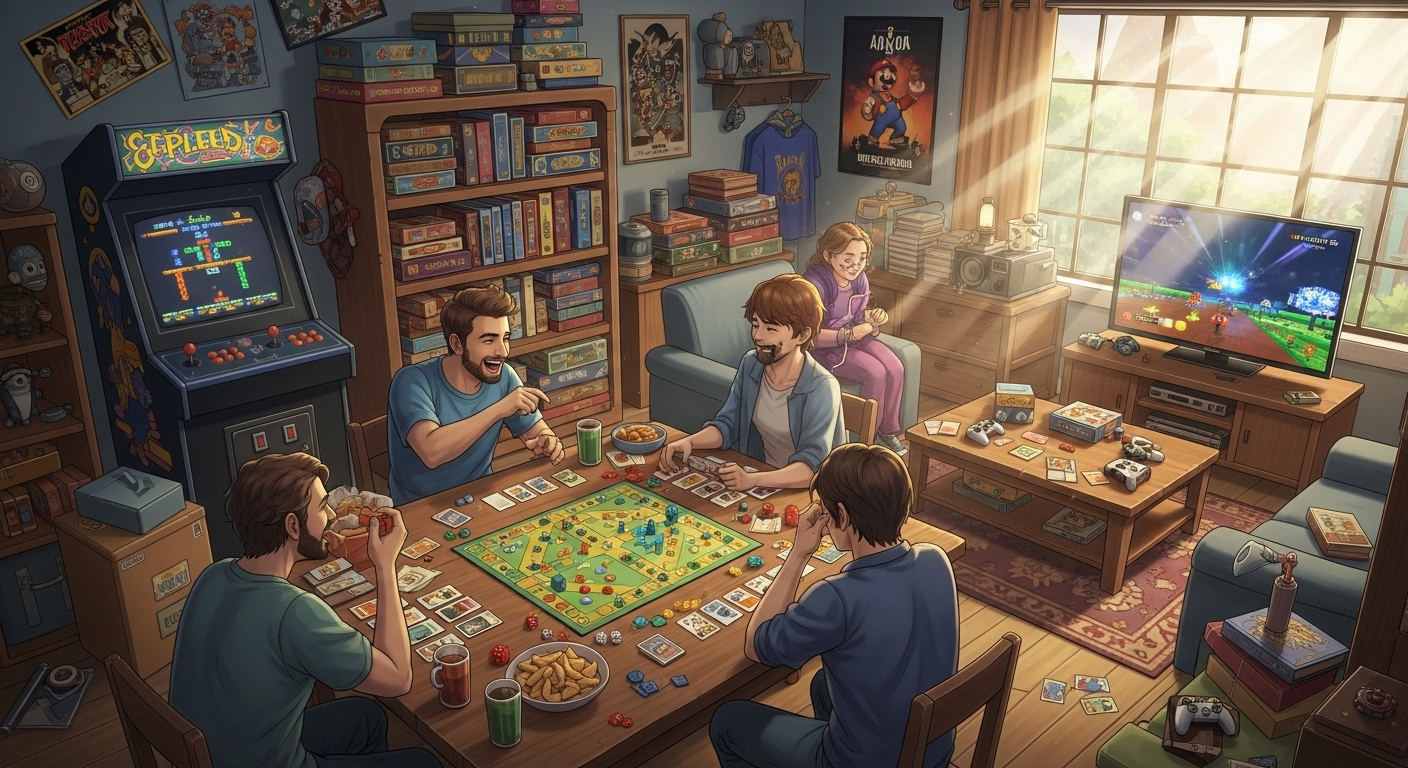Introduction: The Universal Language of Games
Games have been an essential part of human culture since ancient times. Across civilizations, games have served as a form of entertainment, education, social bonding, and even spiritual practice. Whether played on a board, a field, or a digital screen, games speak a universal language that transcends borders, ages, and backgrounds. This blog explores the fascinating world of games, their impact on individuals and societies, and why they continue to captivate millions around the globe.
The Origins of Games: Play Through the Ages
The concept of games predates recorded history. Early humans used simple objects like stones and sticks to create games that mimicked hunting, strategy, or chance. Ancient civilizations developed complex games like Senet in Egypt, Go in China, and the Royal Game of Ur in Mesopotamia. These games were not only leisure activities but also tools to teach skills, prepare for warfare, or connect with the divine.
As societies evolved, games became more structured and diverse. Physical contests such as wrestling and foot races were celebrated at festivals. Board games and card games spread widely, influencing culture and social interactions. The invention of dice introduced randomness, adding excitement and unpredictability to games of chance.
Types of Games: From Physical to Digital Realms
Games can be broadly categorized into various types, each offering unique experiences:
- Physical Games: These include sports, tag, hide and seek, and traditional games like hopscotch. They encourage physical activity, coordination, and teamwork.
- Board Games: Chess, Monopoly, Scrabble, and many others challenge strategic thinking, planning, and social interaction in a tactile way.
- Card Games: Ranging from Poker to Solitaire, card games combine luck, skill, and psychology.
- Role-Playing Games (RPGs): Players assume characters’ roles, often in fantasy or historical settings, engaging in storytelling and problem-solving.
- Video Games: The fastest-growing segment, encompassing action, adventure, simulation, puzzle, and multiplayer games, all accessible on various digital platforms.
Each type of game offers distinct cognitive, social, and emotional benefits, making the world of games rich and multifaceted.
The Psychological Benefits of Playing Games
Playing games is not just fun; it has significant positive effects on mental health and development. Games stimulate the brain, improving memory, concentration, and problem-solving skills. They offer a safe environment for experimentation, learning from mistakes, and developing resilience.
Social games teach communication, empathy, and cooperation. Competing in a friendly manner fosters sportsmanship and emotional regulation. Games also provide a break from daily stress, promoting relaxation and happiness.
Many therapeutic practices incorporate games to aid cognitive rehabilitation, social skills development, and emotional healing. This shows how integral games are to human well-being.
Games as Tools for Learning and Development
Education and games have a long history of partnership. Educational games engage learners by making information interactive and entertaining. They promote active participation and motivate students to explore subjects deeply.
Games teach critical thinking, creativity, and decision-making. For children, play is crucial for motor skills, language development, and social understanding. Simulations and role-playing games prepare individuals for real-world scenarios in fields like medicine, aviation, and military training.
The gamification of learning—using game elements in non-game contexts—has revolutionized teaching methods, encouraging lifelong learning and curiosity.
Social Impact: Building Communities Through Games
Games bring people together. Whether around a board, a sports field, or an online server, games create opportunities for connection. They break down barriers of age, language, and culture, enabling friendships and collaboration.
In today’s digital age, online multiplayer games form vast communities where players cooperate and compete globally. These virtual worlds provide social spaces for people to express themselves, share interests, and support one another.
Competitive gaming and eSports have turned community-building into spectator sports, creating a shared culture of excitement, fandom, and identity.
The Cultural Significance of Games
Games reflect the values, beliefs, and histories of the societies that create and play them. Traditional games often carry cultural narratives, symbolism, and rituals. They preserve heritage and pass knowledge between generations.
Modern games incorporate diverse cultural themes and stories, broadening representation and understanding. Gaming conventions and events celebrate creativity and innovation, highlighting the art and craftsmanship behind games.
The global nature of gaming also fosters cross-cultural exchange, making games powerful tools for promoting tolerance and global awareness.
Technology and the Future of Games
Technology continuously transforms the gaming landscape. Advances in graphics, artificial intelligence, and virtual reality create increasingly immersive and realistic experiences.
Mobile gaming has made games accessible to billions, democratizing play and introducing casual gaming to new audiences. Cloud gaming promises instant access to high-quality games without expensive hardware.
Artificial intelligence enhances game design, offering smarter opponents and personalized experiences. Virtual and augmented reality open new dimensions where players physically interact with game worlds.
As technology progresses, games will become more integrated into everyday life, blending entertainment, education, and social interaction seamlessly.
Challenges and Ethical Considerations in Gaming
Despite the many benefits, gaming faces challenges. Issues like addiction, violence, and online harassment have sparked debates about the effects of games.
Responsible game design and parental guidance are essential to ensure healthy gaming habits. Promoting positive online behavior and inclusivity can help create safer communities.
The industry must also address representation and accessibility, ensuring games are welcoming and enjoyable for everyone.
Conclusion: Celebrating the Power of Play
Games are a fundamental human experience that enrich our lives in countless ways. They entertain, educate, connect, and inspire us. From the simplest childhood pastimes to complex digital worlds, games nurture creativity, challenge the mind, and foster social bonds.
As we continue to innovate and explore new forms of play, the magic of games will remain a vital part of our culture and humanity. Embracing games with balance and respect opens doors to endless possibilities for growth, joy, and connection.

